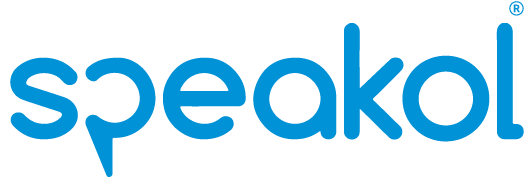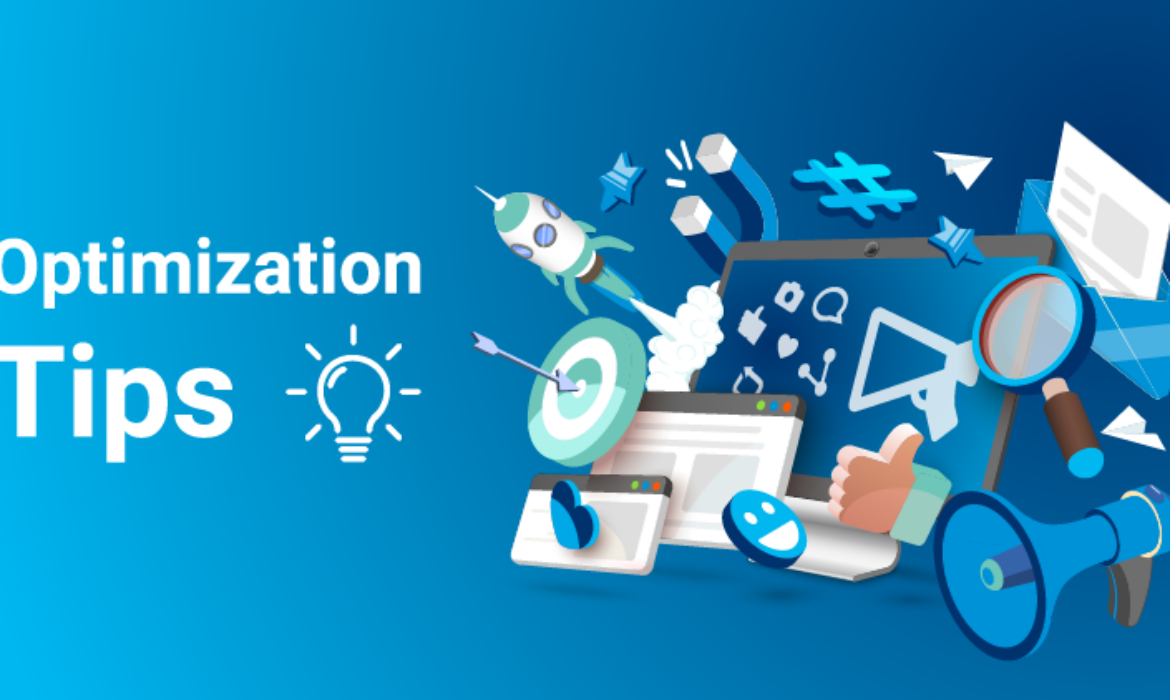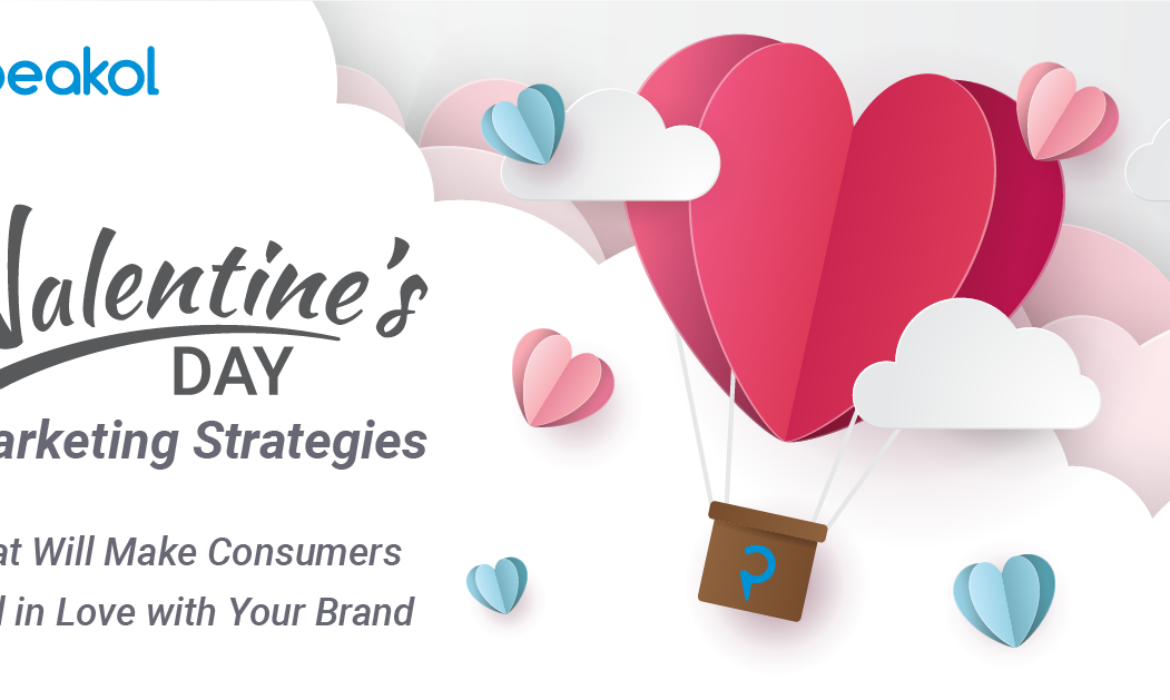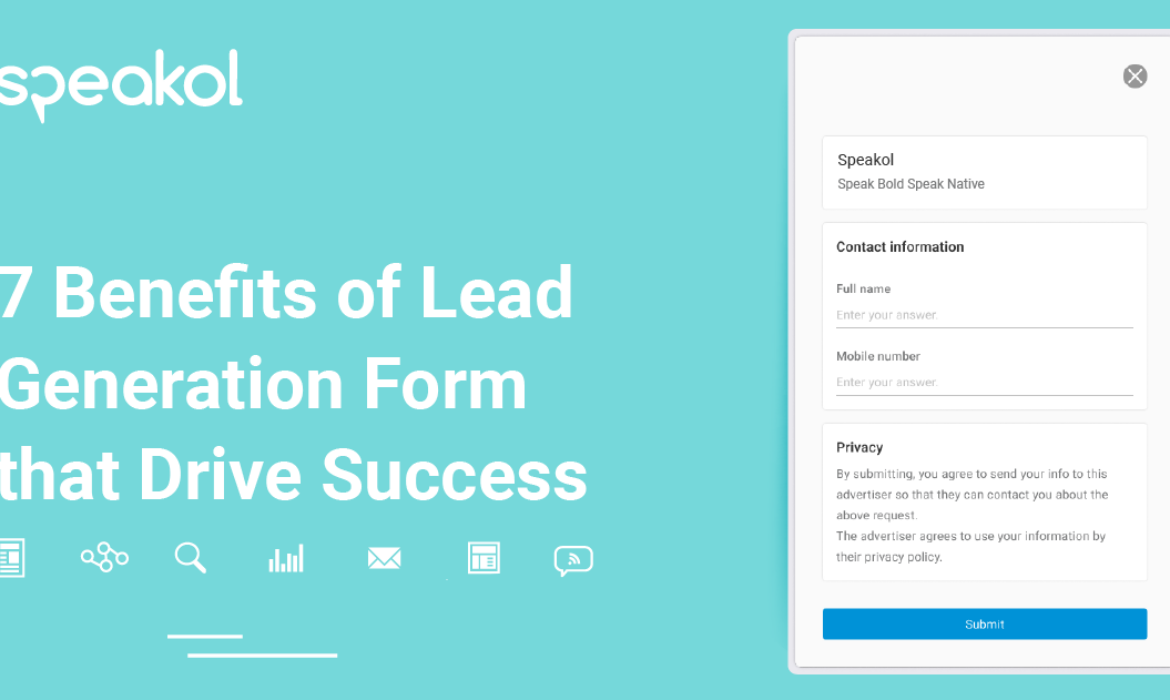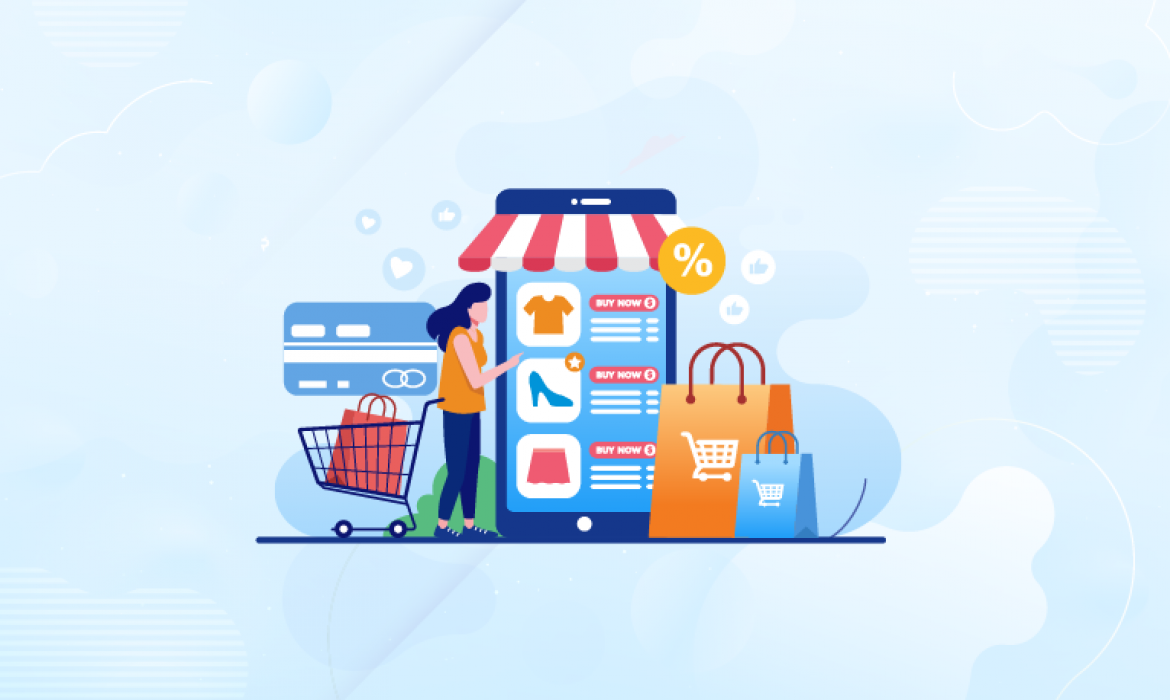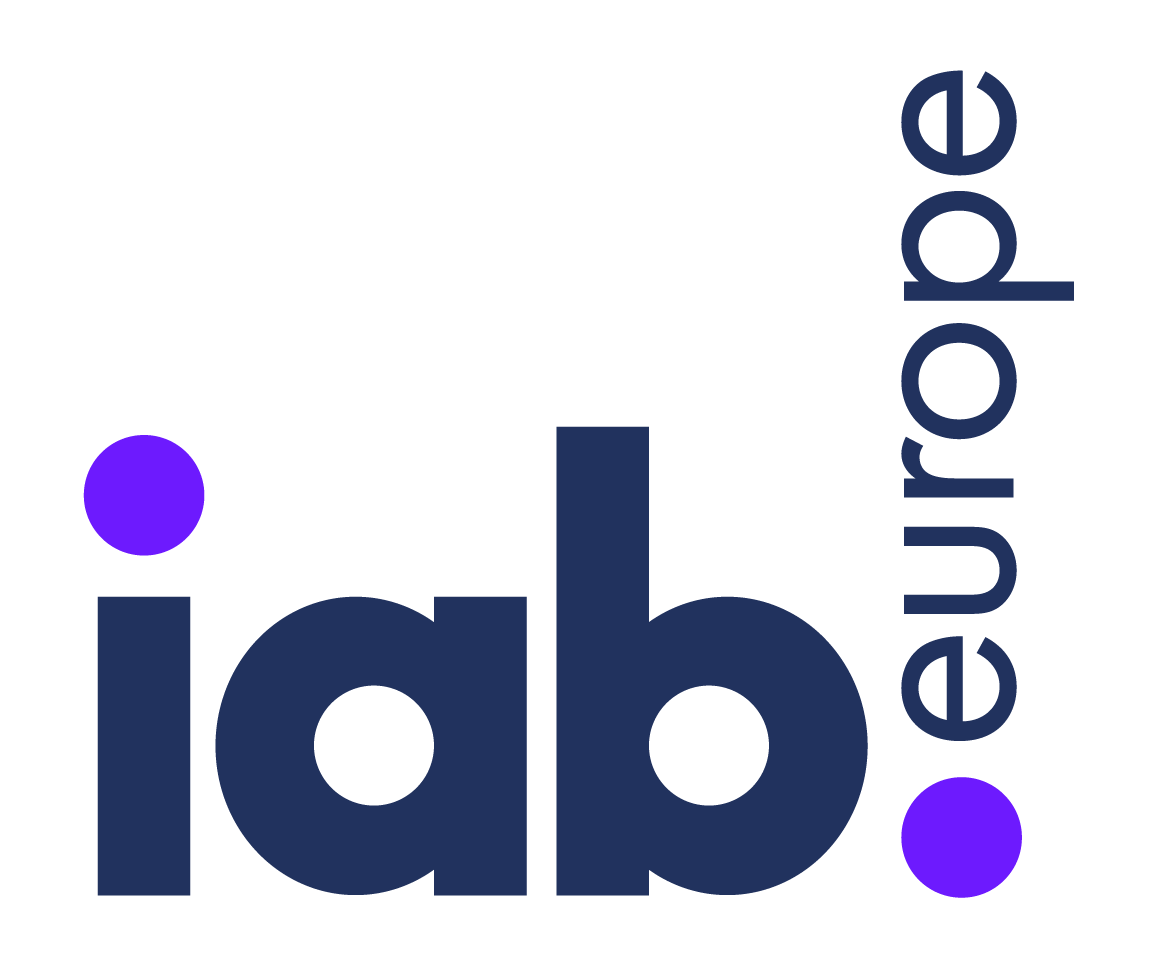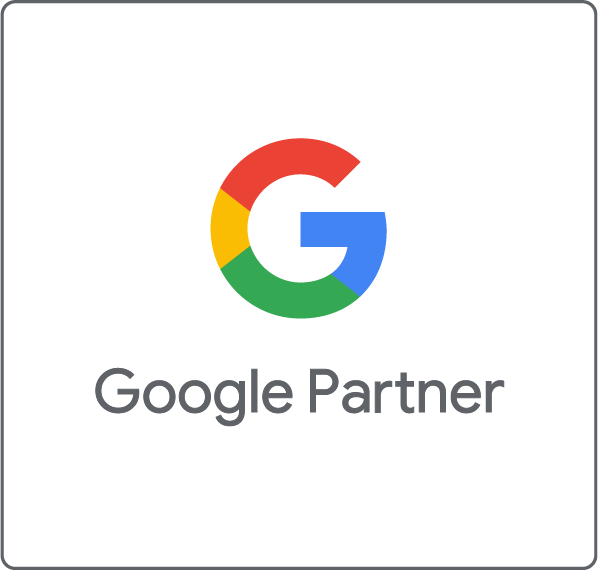Top 10 Optimization Tips
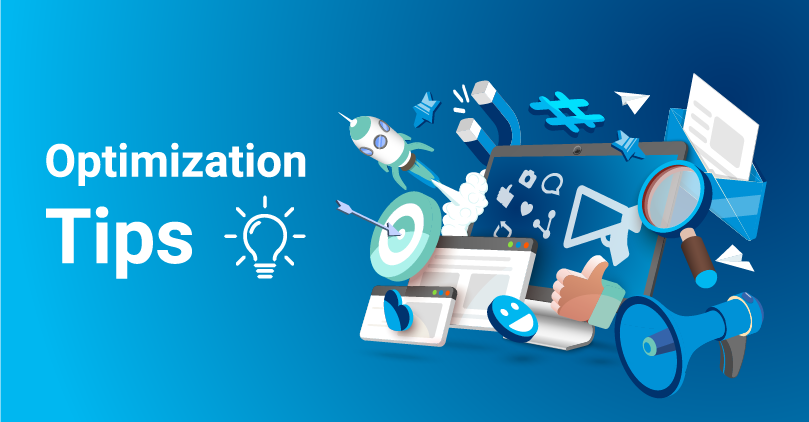
To make the best out of your Speakol ad campaigns, it is essential that you regularly evaluate, monitor your insights, and optimize your resources. By continuously assessing your performance, you will be able to introduce new positive modifications that will see your campaigns thrive.
To help you enhance and improve your campaign performance, we have compiled a list of optimization techniques and recommendations.
1. Define your Goals:
Be clear about your campaign’s purpose and what you mean to accomplish. This organized planning will direct your work and influence your ad titles, images, and landing pages, allowing you to choose the most appropriate publishers, locations, ad types, and bidding modules.
2. Audience Segmentation and Targeting:
Using Speakol’s dashboard, you can create and save audiences for any current or future campaign. This feature allows you to segment your audiences based on their location, mobile, and Android. You can also target specific publishers and content categories. These targeting options enable you to narrow down and engage your target audience, optimize resources, and achieve your marketing goals.
3. Be Unique:
– Avoid repeating adsets with duplicate titles, images, or target groups.
– Pick different ad titles and images from those publicized by your competitors or advertisers, promoting the same product to ensure that you reap maximum profit from your campaigns.
4. Contextual Targeting:
Speakol’s dashboard enables you to target particular content categories along which your ads can be displayed. You can choose the categories based on your service or product. So, for instance, if you want to market real estate, you can select business and finance categories; if you’re going to promote fashion items, you can choose fashion, beauty and cosmetics, and women.
You can easily track the spending and performance of each category and optimize your resources based on the results.
5. Publishers’ Selection:
Speakol has an extensive network of premium publishers in the MENA. The dashboard enables you to select or remove publishers. You can also adjust the CPC (cost per click) and DB (daily budget) for the entire campaign based on your campaign performance to achieve your desired ROI.
6. Constantly Assess the Efficiency of your Campaign Variables:
– Throughout your campaign, it is quite useful to initiate A/B testing from time to time. A/B testing means testing two or more options while maintaining one variable at a given time. Among the testable variables are ad titles, ad images, landing pages, locations, and platforms. You can run your test for a minimum of 7 days (1 week) to have enough data to analyze. Based on the report, you can set more optimized strategies to enhance your Speakol campaign. We recommend testing different variables from time to time to ensure the best results for your campaigns.
– A/B test enables you to eliminate low-performing campaigns and know which campaign, ad set, title, and image perform best, driving high traffic, CTR and CR. This valuable data will increase your ROI (Return On Investment).
7. Promote Highest Performing Campaign Ads:
Once you launch your campaign, you will have the chance to assess the performance of your ads. To make an informed decision regarding those ads, you need to consider a few KPIs, including CTR (clickthrough rate), CR (conversion rates), OCPA (optimized cost per action), as well as CPC (cost per click).
– CTR (Clickthrough Rate) is an essential measurement tool to verify the effectiveness of your campaigns by measuring the percentage of users who clicked on your campaign ads. It guarantees a good standing in Speakol’s widget. The recommended CTR is 1% or above. If your CTR is under 0.5%, you need to reassess your inputs.
– CPC (Cost Per Click) is the amount you are willing to pay every time a user clicks on one of your campaign ads. You want to set a CPC that allows you to meet your performance goals. If the CPC is too low, you will not be able to obtain the number of clicks required; at the same time, if the CPC is too high and you fail to secure the number of clicks required, this ad will fail to meet its purpose. Still, Speakol recommends that you start with a high CPC when you launch your campaign to ensure that it is competitive, which increases its visibility and subsequently increases the number of clicks. That way, you can have enough data to make informed optimized decisions on how to run the Speakol campaign.
8. Optimize Your Landing Pages:
– Your landing page should introduce your service or showcase your products. Be concise and precise (400-600 words) in describing your value proposition to avoid losing potential customers.
– Use a simple, engaging design and layout. Highlight the headlines and write short, interesting paragraphs.
– Choose exciting pictures that reflect the content.
– Provide a good user experience.
– Choose the CTA (call to action), you want your users to take. Where you place your CTA and how you word it significantly influence how users engage with your page. Give users incentives to take action and avoid confusing them with multiple CTAs.
9. Utilize the Speakol Pixel:
– Once users perform a specific action on your website, the Speakol Pixel is activated and automatically tracks and reports this action. You can track actions such as purchasing a product, viewing a page, or signing up.
– The Speakol Pixel aims to drive better performance through data-based optimization and allows tracking conversion rates and values. This feature enables you to determine whether Speakol is positively influencing your numbers by monitoring conversions that take place after users click on your campaign items and allows you to enact the necessary changes and amendments for better results.
10. Set a Budget that Works for you:
– Having a substantial budget is highly recommended, for it will allow you to garner enough data to make informed decisions, which will subsequently improve the performance of your campaigns.
– We recommend that you balance your budget and do not spend it all too quickly without first assessing the performance of your campaign. Otherwise, you risk running out of money, losing your edge, and incurring more financial burdens due to the rise of the CPL rate.
“Share the Love”: Valentine’s Day Marketing Strategies That Will Make Consumers Fall in Love with Your Brand
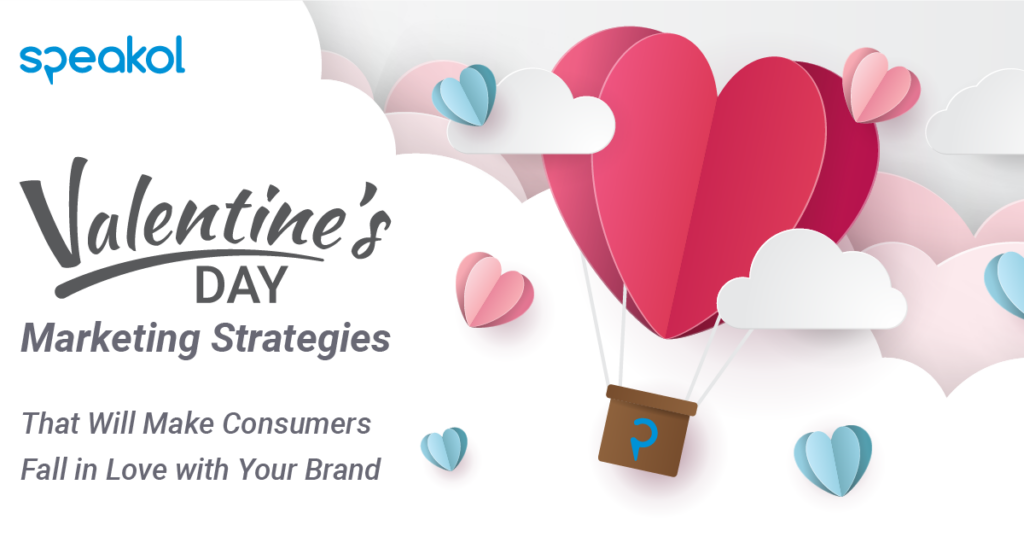
February is the month of Love.
This article will share the trends to enable you to create engaging marketing strategies that will generate more leads, boost sales, and target with more accuracy than Cupid himself. By reviewing some of the global marketing trends from 2021, we can know what can potentially score with audiences this year.
Top-Performing Content Types:
Top-Performing Brands:
The pandemic has changed consumer behavior; since 2019, e-commerce has seen unprecedented growth and continues to do so. E-commerce sales in 2021 rose 11% from 2020 and an astounding 61.4% compared to 2019.
You can promote Valentine's Day not just as a day to celebrate with your significant other and spouses, but it is a day to celebrate friendship. It is a day to exchange gifts across all relationships, including family, friends, and coworkers. Feel free to redefine the holidays any way that best suits your brand, depending on your products' nature and value proposition. You can promote Valentine's Day or adopt an anti-Valentine's Day position by supporting singles. There is no single way to make the best of this season.
It is also vital you promote fun business partnerships. This can be useful for both startups and established brands. When iconic brands partner with startups, they look timely and youthful, while the startups look like they are right up there with the big names. So, find a brand that complements your own and start a partnership to engage your target audience.
Consumers are looking for:
-Retailers with guaranteed fast delivery
-Retailers offering personalized services and customizable products (customized content and promotions generation 20% rise in conversions)
-Top keywords "valentine," "love," "gift guides," "diamond," "flower," and "chocolate."
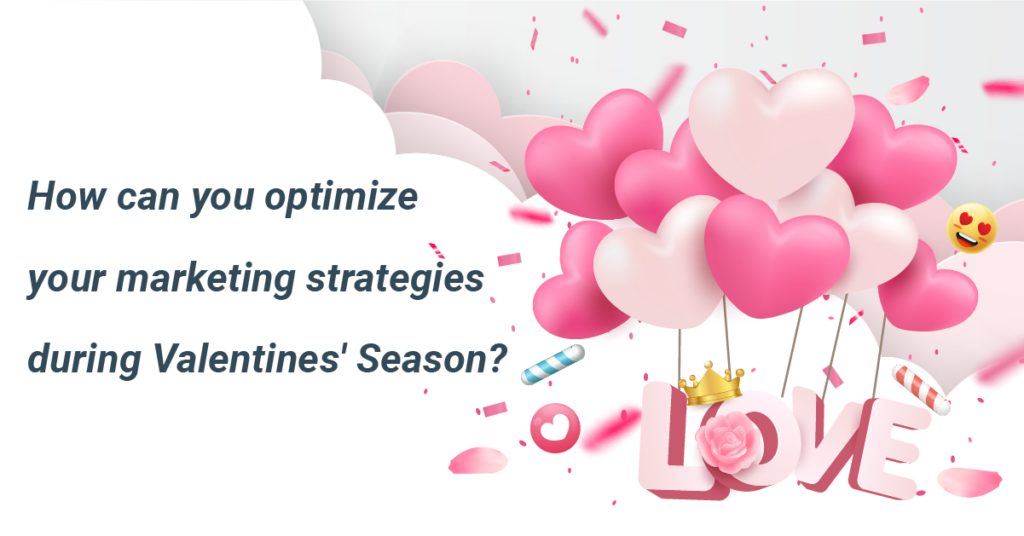
2.Use videos and gifs to attract views and attention, generating higher conversion rates and lower costs.
3.Target mobile over tablet and desktop.
4.Use high-quality images.
5.Choose the right time to ensure the highest visibility and engagement.
6.Select your content type. You can promote articles or more interactive content such as quizzes personalizing everything based on demographics to make it more relevant to your target audience.
7.Drive urgency by promoting time-limited offers.
8.Highlight your delivery days.
9.Create engaging gift guides for different audiences.
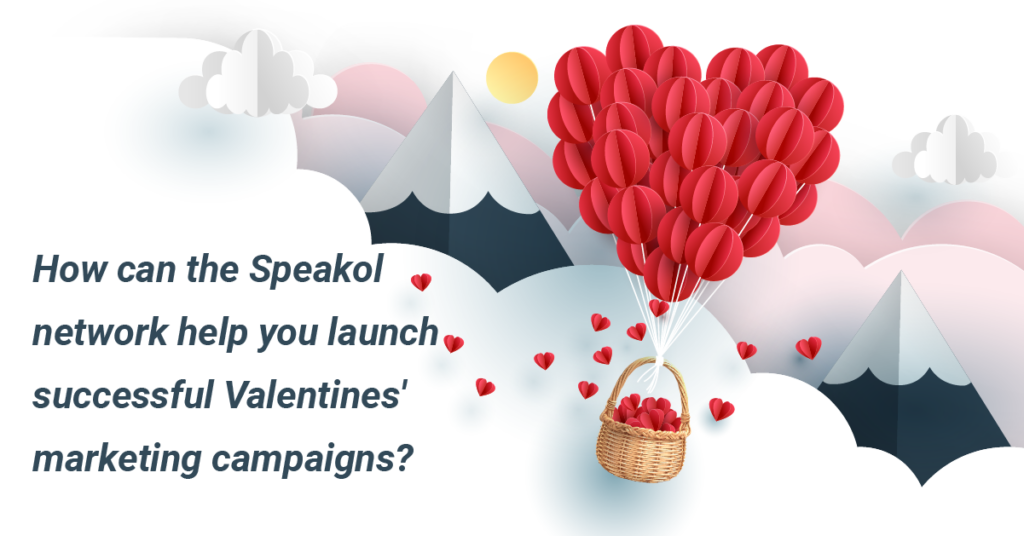
2.Use contextual targeting to ensure your content is featured alongside relevant content that exposes your brand to your target audience.
3.Use location targeting to design the right creatives and messages for each market.
Be inclusive. Valentine's Day means different things to different people; it ranges from romance to self-care. Therefore, share the love with couples, friends, children, and singles, giving your brand ample opportunity to leverage the power of emotions to connect with all audiences regardless of their relationship status.
Remember that without a single mention of heart-shaped chocolate or romantic archers, you can still deliver honest, authentic love stories extended offers that your customers love and trust. 2.Use contextual targeting to ensure your content is featured alongside relevant content that exposes your brand to your target audience.
7 Benefits of Lead Generation that Drive Success
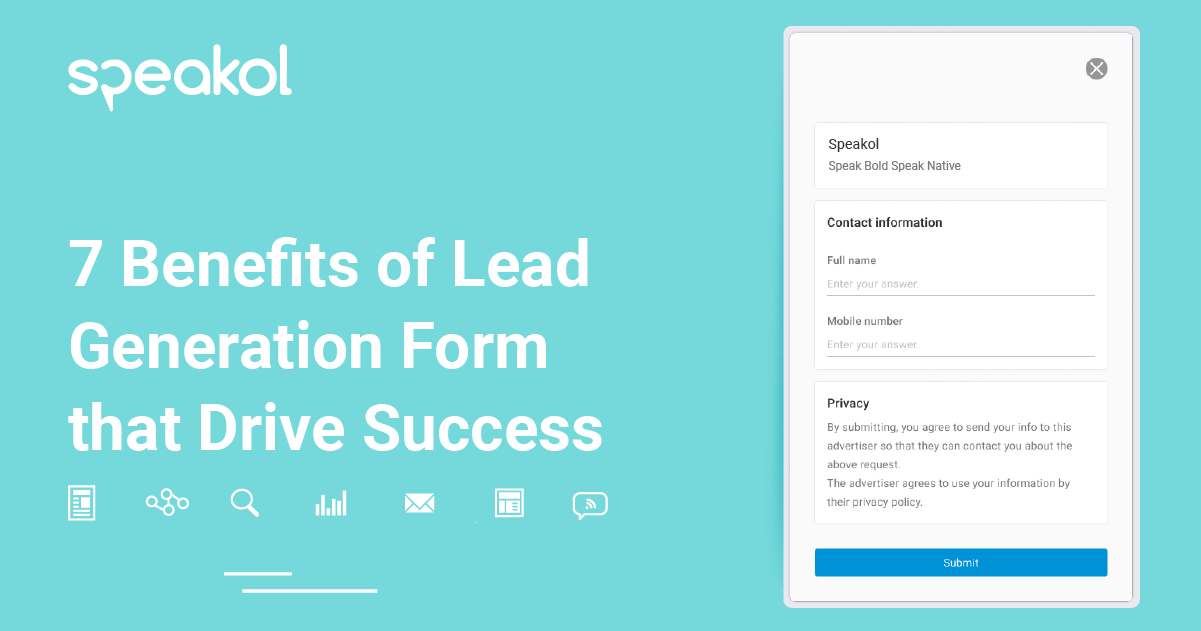
As marketers constantly search for the best, most effective tools to engage users, 67% of brands and businesses have drifted towards lead generation as the sole metric to determine their content success.
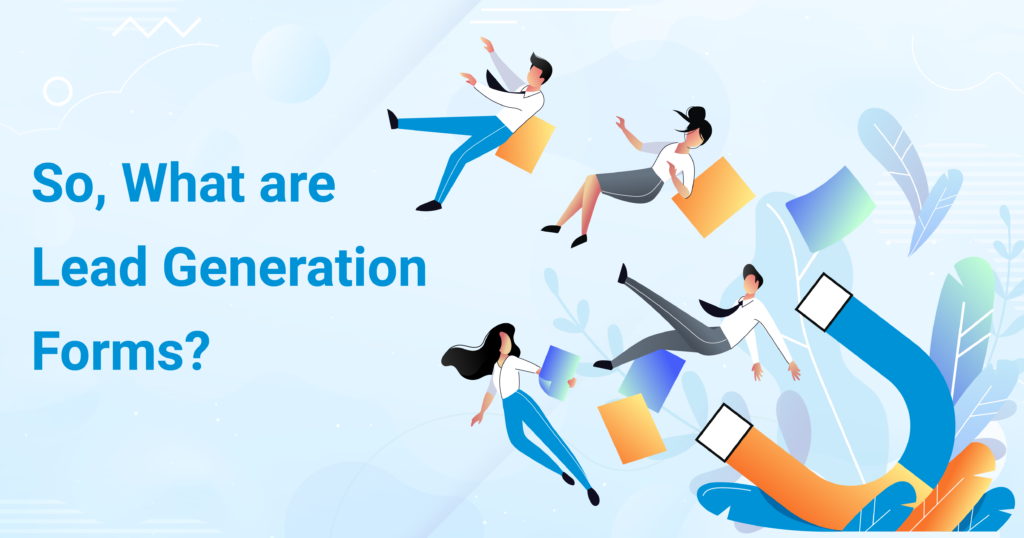
Lead generation, essentially, is the use of online marketing strategies and tactics to identify, engage and convert potential users interested in using your services and products. Lead Generation form is a web form meant to gather emails and other information from potential customers; the most common forms include contact, registration, or newsletter signup forms. They aim to engage and convert your target audiences interested in your product or service by actively clicking on your ads. Using lead generation forms, advertisers strive to guide prospects through the buyer’s journey to the end of the sales funnel.
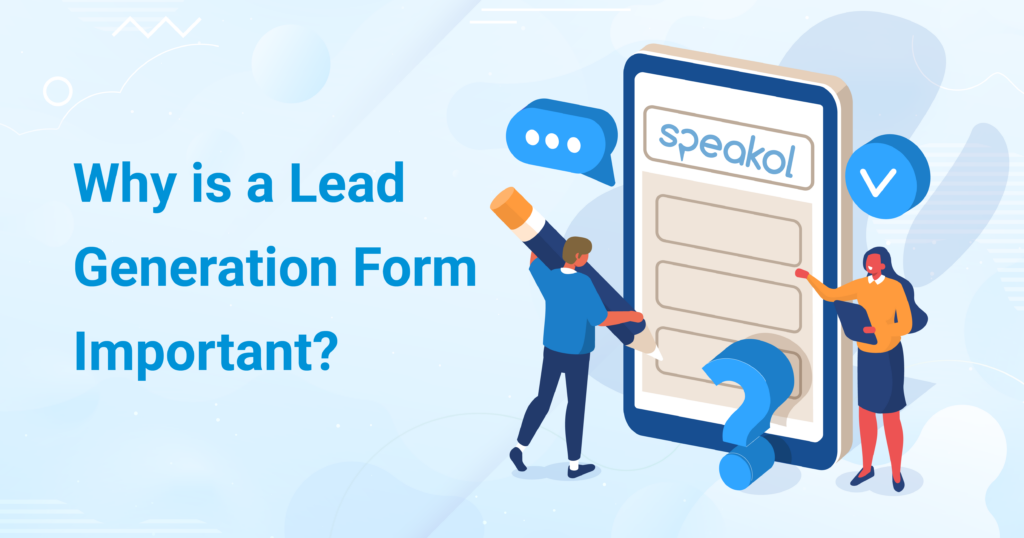
Without a lead generation form, your revenues and growth rely on the whims and inclination of your target audience; in that case, you may have no “leads” for sales to reach out to, which makes it challenging for your business to grow and develop. But with lead generation forms, you are taking matters into your own hands; it creates visibility, credibility, trust, and interest for your potential leads, which are essential for the sustainability of your business.
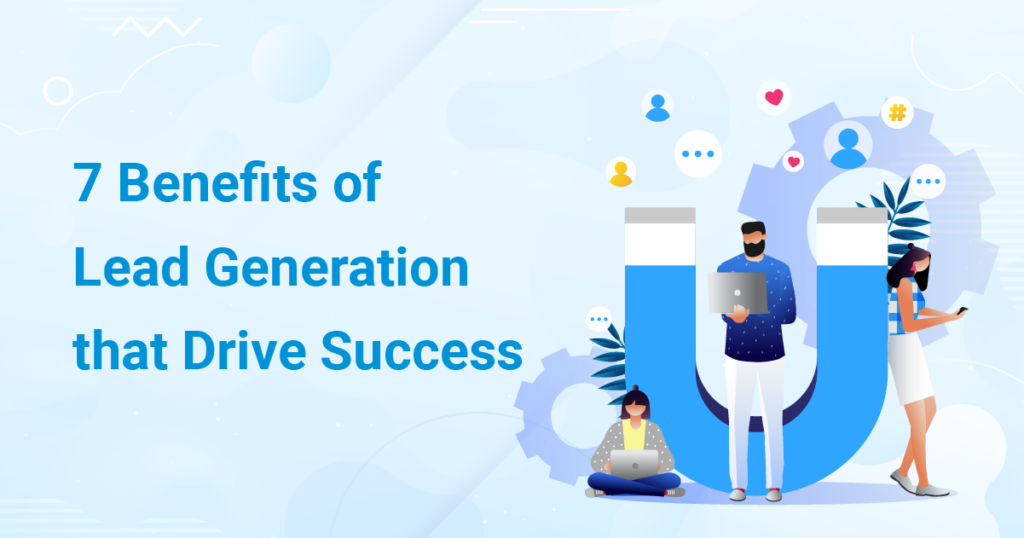
1. Capitalize on Mobile Ads.
Lead Generation forms allow you to reach audiences on mobile phones where they spend most of their browsing time. With zero disruption, your ad will be displayed to targeted, interested users who are more likely to engage and fill in your short form on their tiny screens.
2. Shorten the User Journey
They enable you to acquire more qualified conversions and reduce drop-offs using easy-to-fill-in forms that users are most likely to complete and submit.
3. Expand Your Market:
Lead Generation forms enable you to target a wider audience and learn more about your possible prospects. So if your lead generation forms engage and capture the attention of companies, segments, or audiences that were not previously included in your marketing campaigns, you will be able to modify your marketing messages to address, engage, and convert them.
5. Gather Valuable Insights and Testimonials:
Nw, you can collect and gather valuable information and insights that are vital for the success of your business as well as customer testimonials, for nothing convinces prospects to convert into customers as much as seeing credible social proof. A client’s review builds credibility and trust. So use these as part of your marketing strategies on your website, emails, videos, posts, and infographics.
6. Improve Lead Quality and Boost Your Revenues:
When properly utilized, they can maximize your reach of qualified leads. All you need is the right message, offer, and content to generate interest from your target audiences. Once you engage the right audience, your sales team can convert them into customers, which will boost your revenues.
7. Boost Brand Awareness:
Visibility and brand awareness are vital for any business. Create content that your audiences are invested in and engage with.
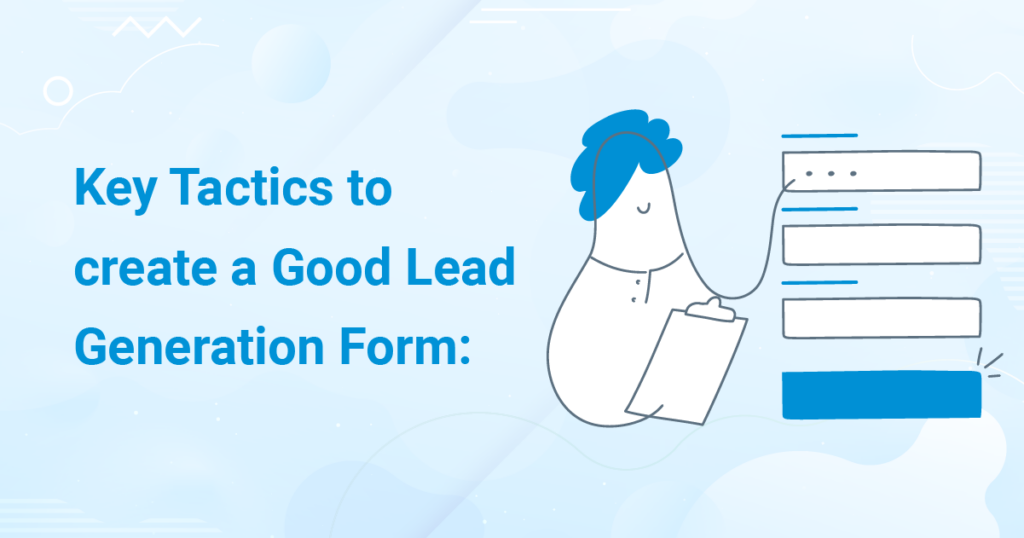
1- Communicate the value of your brand for users to urge them to share their information with your business.
2- Make sure that your ad reflects the spirit and nature of your company.
3- Use form submission that is a distraction-free landing page using the right layout.
4- Limit the number of fields to avoid overwhelming your user. According to Quicksprout, limiting the number of fields to just three can guarantee a minimum conversion rate of 25%, 20% for 3-5 fields, and only 15% for more than six fields.
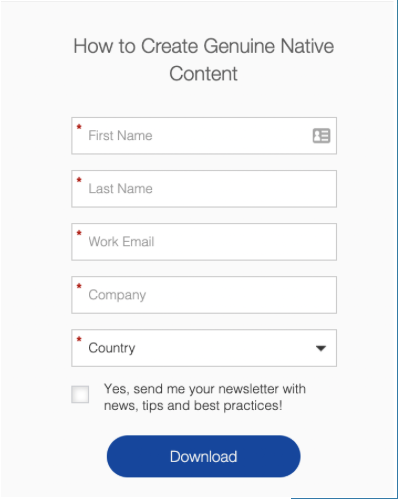
5- Try conditional logic to ask better questions. Hide or display specific fields to certain users, for not only does it get you more details, but it also helps with your conversion rate by improving the user experience.
6- Use descriptive CTAs that explain to users what to expect once they click. “Submit” is too vague; maybe try using words like “go” or “click here.”
7- Use bold, attractive colors for your CTA. Red is the highest performing color. Still, don’t underestimate orange and green.
8- Show Social Proof and testimonials to show credibility and win trust.
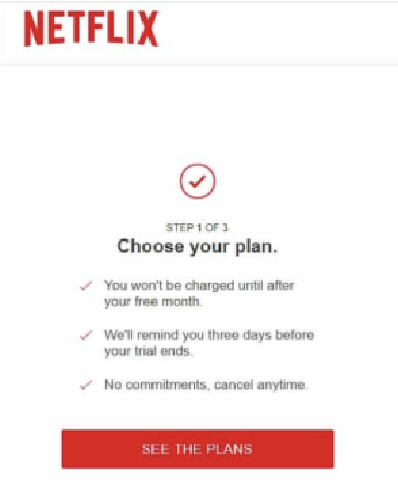
9- Insert stunning, high-resolution visuals.
10- Encourage visitors to share their business email addresses.
11- Offers serve as excellent incentives that are targeted at their customers’ needs.
12- Use a yes/no button tactic highlighting the button you want users to select in a unique color.
13- Use a highly effective lead generation strategy by offering free services to capture leads and then focus on upselling or cross-selling opportunities in the future.
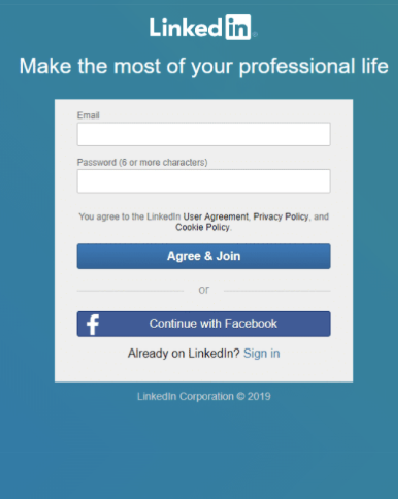
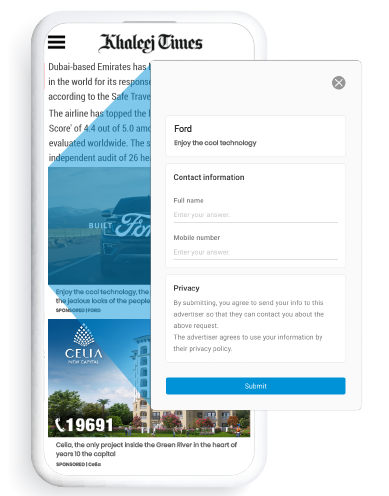
Lead generation forms can significantly increase your conversions, introduce a bigger audience to your brand, and create a better user experience.
With the key tips mentioned above, you can create your lead generation that best presents your brand and business in minutes.
So, focus on aspects that matter to the end-users.
Always consider your goals, define the kind of data you want to collect, and consider its importance to your business.
A/B test different CTAs.
Create concise forms and remove any barriers to form completion.
How to Create Engaging E-Commerce Landing Pages that Convert?
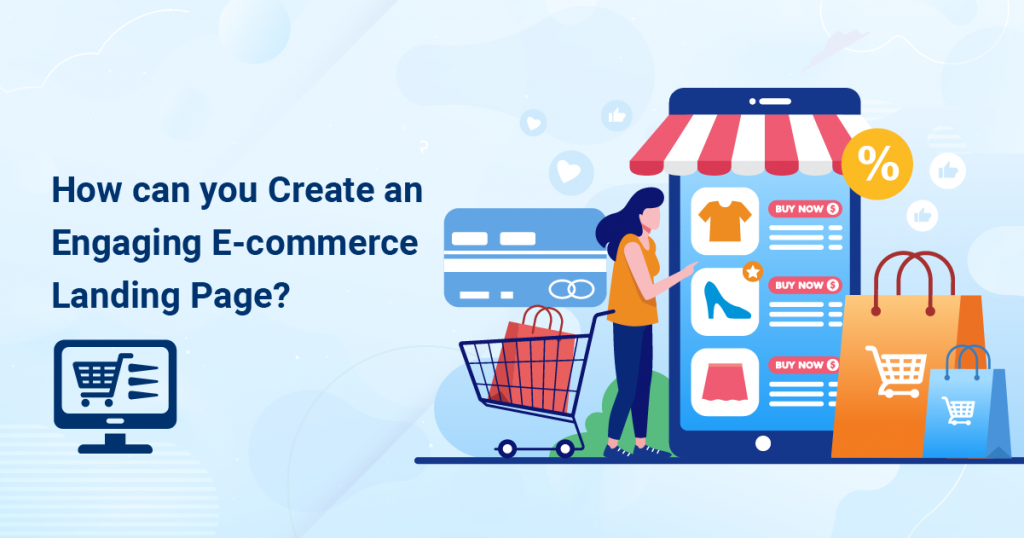
E-commerce is a fast growing industry that its sales are expected to surpass $4 trillion. Now, more and more people are launching and managing their e-commerce stores, focusing on driving traffic and increasing sales. So in other to stand out in this highly competitive domain, you need to put together a high converting landing page to engage your users and urge them to convert. You can create various targeted e-commerce landing pages for specific audiences to reach out to people at the right time.
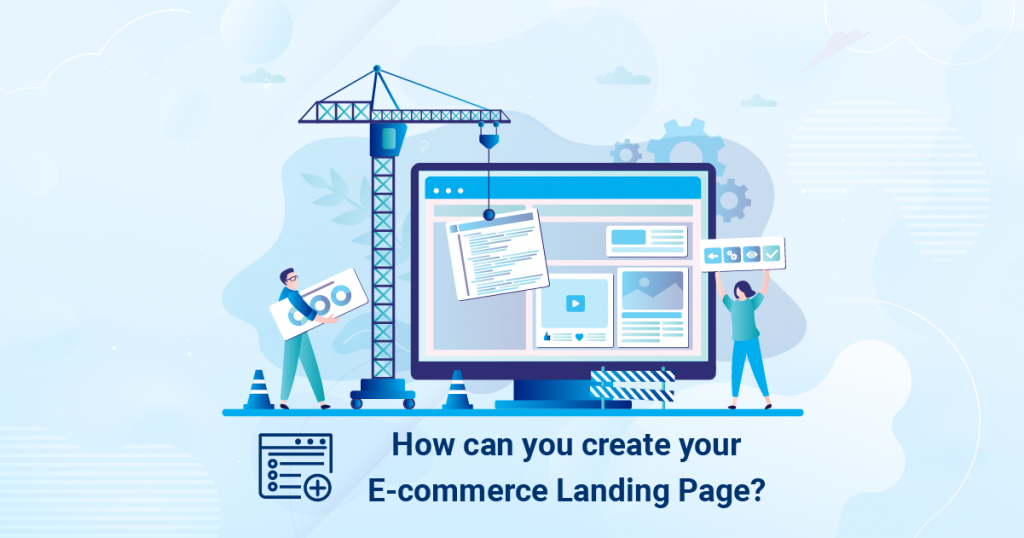
Your landing page should be separate from your website, where leads can access it by clicking on an ad. The page is created to convert potential customers and start their shopping experience. It can act as a catalyst to generate leads and increas conversion rates which will boost all your marketing efforts. Each page should match the tone of the ad it is linked to using one specific CTA (call to action), which is primarily making a purchase.
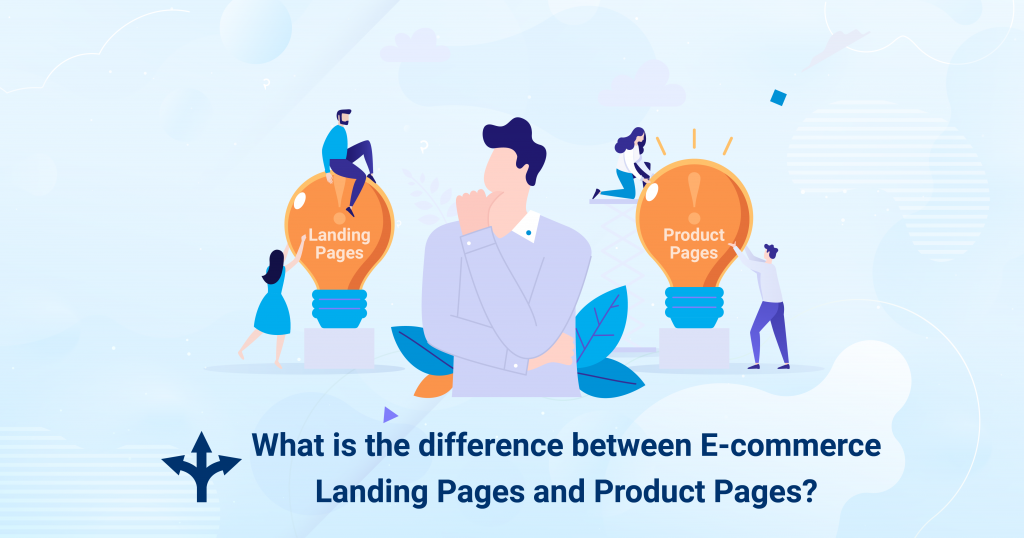
Your Product Page is essential to introduce your audience to your brand and provide specific product information; however, these pages do not always elicit action. In fact, around 72% of your product page visitors bounce in comparison to those of your targeted landing page.
The reason is that landing pages are designed and optimized for conversion, while product pages focus on informing and educating your audience.
| Points of Difference | Landing Page | Product Page |
| Image | ||
| CTAs | 1 clear CTA | can include multiple CTAs |
| Navigation | straightforward without any site navigation | features additional pathways, such as site navigation and product categories |
| Content | centers on converting targeted audience | General content for the masses |
| Products | Include product descriptions targeting specific audiences. | includes general product descriptions and product recommendations |
| Optimization | optimized for marketing campaigns | optimized for SEO to attract organic audiences |
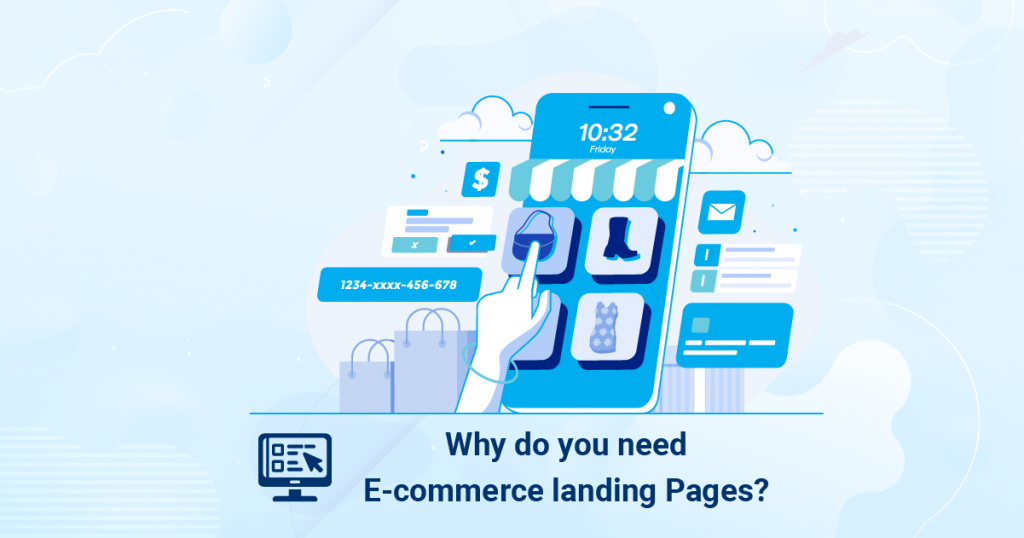
- Key part of your sales funnel. They link your engaged user who clicked on your ad to your online store to close the deal and finalize the purchase.
- Drive traffic to your website.
- A/B test the designs of specific marketing initiatives and assess what the audience respond to better.
- Persoanlize pages targeting different customer segments.
- Address your audience to engage users in different stages of their buying experience You can raise awareness, remarket, upset, or re-engage.
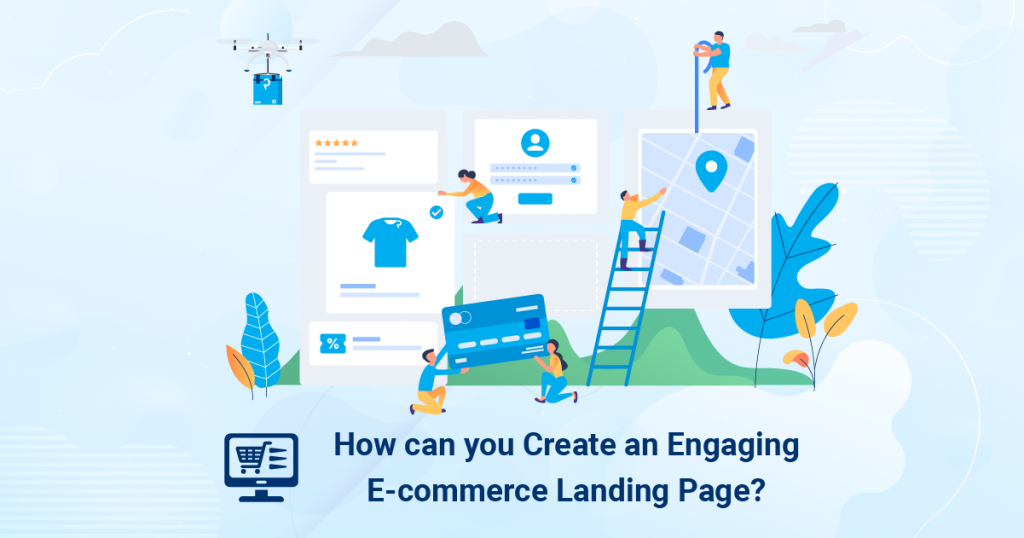
How can you Create an Engaging E-commerce Landing Page?
- Be precise and concise:
Users take seconds to decide whether to stay on your page or bounce. So don’t overwhelm with irrelevant information. Make every single element count and contribute to your purpose. - Clearly state your value proposition:
Use compelling language for your headline and subheadline to state the benefits of your offer and the point of differentiation between your product or service and those of your competitors. Write product details in bullet points. - Use visible and clear CTAs:
Use one very clear CTA to avoid confusing your audience. Make them visible and accessible. You can place your CTA at the top of the page, include multiple buttons for a single CTA throughout the page. A/B and try different CTAs, test different placements, button text and colors.
Experiment with CTAs like:
– Shop NOW
– Get Started
– Sign Up for Free
– Add to Bag/ Cart - Use Offers and Discounts:
Create a sense of urgency or exclusivity to urge your audience to convert. - Use relevant high-quality images:
A picture is worth a thousand words; give your audience an experience similar to that they enjoy in-store. Therefore, choose high-quality images that fit your objective. Ensure that all images are optimized for all your targeted devices especially mobile which has become increasingly popular for e-commerce transactions. - Include testimonials as social proof to build trust and credibility. Remember that when people shop online they always look for reviews and comments from previous users.
- Remove site navigation links.
- Run video ads to your e-commerce landing page for they drive more clicks and conversions using a smaller budget.
- Upsell and cross-sell products. Promote products that are highly complementary or are relevant to the one users are purchasing. This can definitely boost your sales.
Once you consider all those tips and tricks create initial landing pages with variations to start testing theis efficacy with ads. Then you can release the winning landing page to the public. Still, never stop assessing, monitoring, testing and tweaking your landing pages.
So don’t hold back; unleash your creativity, engage your audience, and watch your conversion rates soar; your brand gains new clients, cementing itself as a market leader.
How to Create Engaging Real Estate Landing Pages that Convert?
How to Create Engaging Real Estate Landing Pages that Convert?

While Real Estate agents need to learn about each client to find them the perfect property, real estate marketing requires digital content to address various viable leads. That is where the magic of landing pages comes in. Now you can create targeted real estate landing pages for specific audiences engaging the right people at the right time.
So once someone clicks on your ad, signaling a clear interest in your service, all you need to do is inform them of your services.
How can you create Real Estate Landing Pages?
Your landing page should be separate from your website, where leads can access it by clicking on an ad. You can use it to drum up leads, build your mailing lists, or schedule bookings. This page should have one main goal: Conversion. Each page should have match the tone of the ad it is linked to using one specific call to action (CTA)
Why do you need Real Estate landing Pages?
1. Maximize your impact on targeted traffic. Landing pages are more effective than your website, which might not deliver on the promise advertised in your ad. By creating specific landing pages, you avoid losing potential customers by leading them to a dedicated page that addresses a single conversion goal, significantly increasing your odds of closing deals.
2. Grow your email lists. With a lead generation form and enticing offer, you can gather potential leads’ contact details to follow up, target, and convert into clients.
3. Showcase specific properties, present your real estate services targeting a particular audience.
4. Create a sense of urgency, using words like “exclusive” and “limited.”
5. Monitor and assess campaign performance. Landing pages will enable you to determine the effectiveness of your ads, track your clients’ journey on your landing pages as well as specific actions.
How can you Create an Engaging Real Estate Landing Page?
1. Single Call to Action (CTA):
You need to inform your potential clients what to do next. Your CTA must be your conversion goal: “sign up,” “schedule an appointment,” etc.
2. Use Engaging visuals:
Real Estate is all about selling a vision. Include engaging images and professional photos of your properties, a virtual walkthrough of your real estate.
3. Use clear Language:
Don’t deceive or mislead your audience. Use transparent and clear language to highlight your properties, benefits, and offers.
4. Social Proof – Feature reviews and testimonials:
Convince potential leads of the quality and seriousness of your offers by featuring the feedback of satisfied clients to highlight your reputation and build credibility.
Some Tips:
1. Consider the story your page is telling—interlace testimonials with benefits. Maintain consistent messaging throughout. Keep true to your brand and campaign.
2. Be creative in your slogans, tag line and provide an easy-to-skim overview of the perks and benefits.
3. Provide an accessible, straightforward page that is easy to navigate to avoid overwhelming potential clients.
4. Use interactive content like high-quality images, GIFs, or videos.
5. If you are using lead generation forms, experiment with visual forms and different types of engagement like multiple choice checkboxes accented with fun visuals.
6. Tailor the experience based on visitors’ expectations. Personalize your pages. A/B test to assess which landing pages convert best.
So don’t hold back; unleash your creativity, engage your audience, and watch your conversion rates soar; your brand gains new clients, cementing itself as a market leader.
